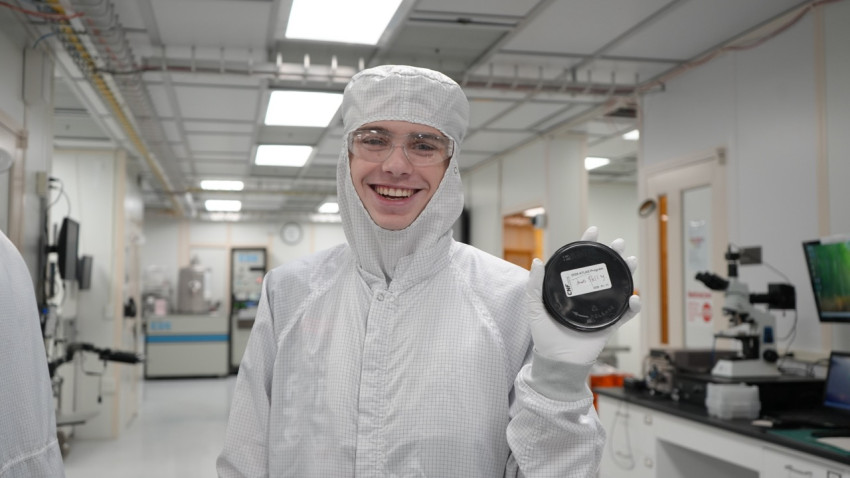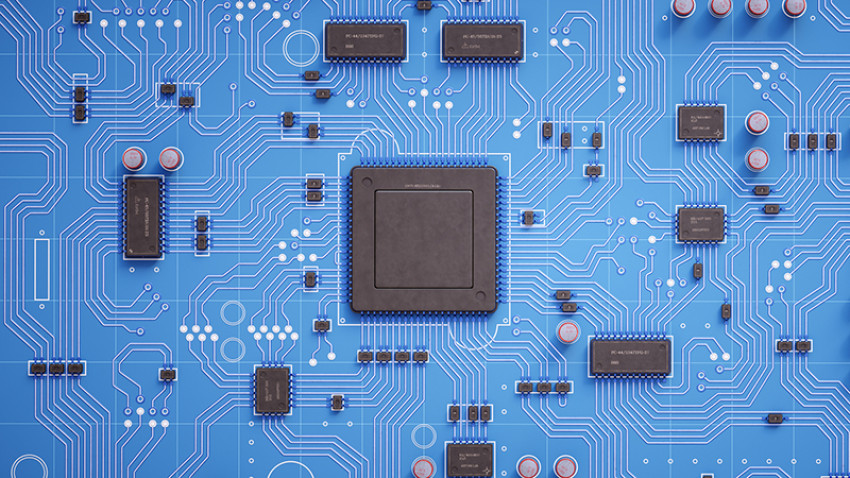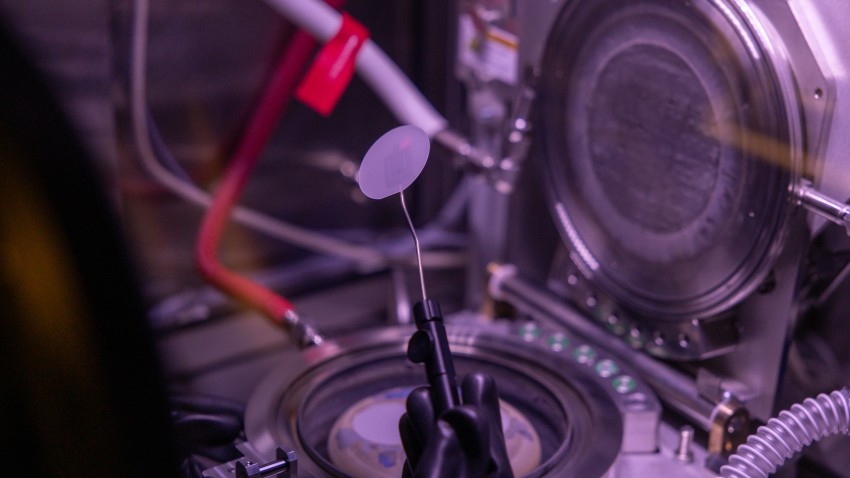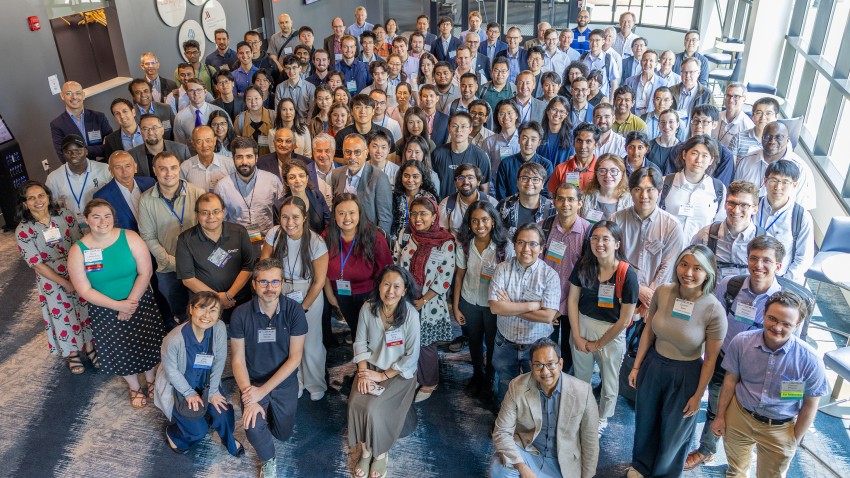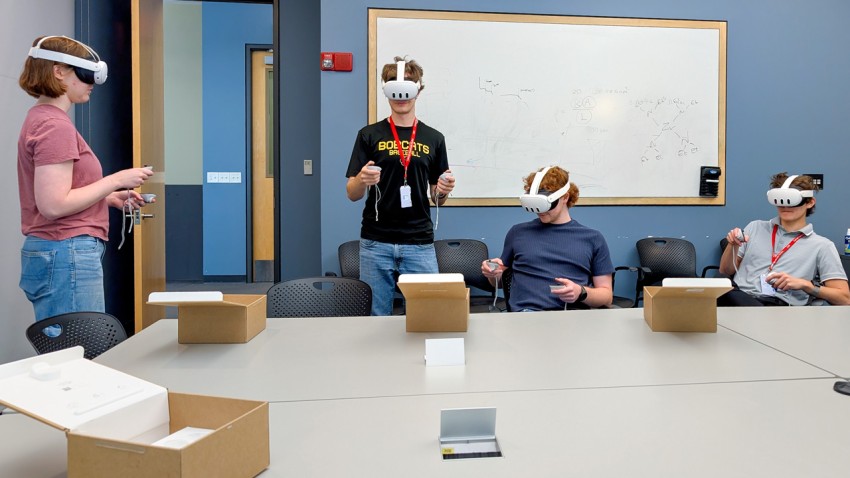News
High school seniors from Tompkins-Seneca-Tioga BOCES stepped into the cleanroom at Cornell’s Cornell NanoScale Science and Technology Facility this January, trading classroom labs for hands-on experience in one of the nation’s most advanced university nanofabrication facilities.
Cornell researchers have developed a new transistor architecture that could reshape how high-power wireless electronics are engineered, while also addressing supply chain vulnerabilities for a critical semiconductor material.
A custom-built, metal-organic chemical vapor deposition system in Duffield Hall will help forge new directions for nitride semiconductors, materials best known for enabling LEDs and 5G communications.
Cornell researchers have built a programmable optical chip that can change the color of light by merging photons, without requiring a new chip for new colors – technology that could potentially be used for classical and quantum communications networks.
Cornell researchers have demonstrated that, by zapping a thin film with ultrafast pulses of low-frequency infrared light, they can cause its lattice to atomically expand and contract billions of times per second, potentially switching its electronic, magnetic or optical properties on and off.
A new innovation from Cornell researchers lowers the energy use needed to power artificial intelligence – a step toward shrinking the carbon footprints of data centers and AI infrastructure.
Cornell University hosted the 2025 SUPREME annual review, bringing together academia, industry, and government to advance next-generation semiconductor innovation and workforce development.
Nearly a decade after they first demonstrated that soft materials could guide the formation of superconductors, Cornell researchers have achieved a one-step, 3D printing method that produces superconductors with record properties.
The Cornell NanoScale Science and Technology Facility has launched a free VR youth outreach module, designed to prepare the next generation of students in cutting-edge microchip fabrication.
The NSF, in partnership with Intel, will invest $20 million over five years to establish the Artificial Intelligence Materials Institute at Cornell, as part of the National Artificial Intelligence Research Institutes.
Cornell researchers have uncovered a microscopic layer of carbon contamination, often left behind by air exposure and fabrication techniques, that impairs electrical flow in devices made with gallium oxide. They also found a solution.
Gallox Semiconductors, a startup with Cornell Roots, won the 2025 Hello Tomorrow Global Challenge in the Advanced Computing & Electronics category. A member of the Praxis Center for Venture Development, Gallox is one of several semiconductor startups launched at Cornell.

